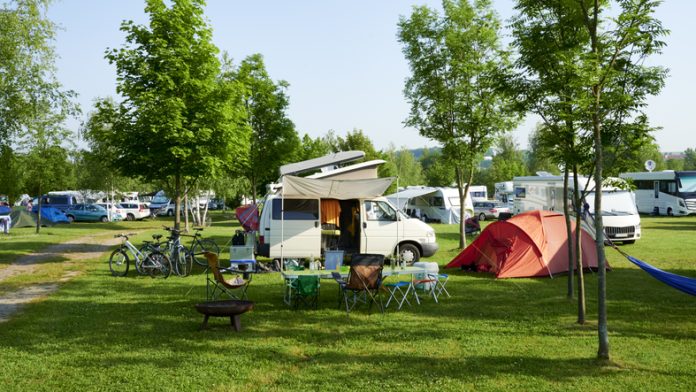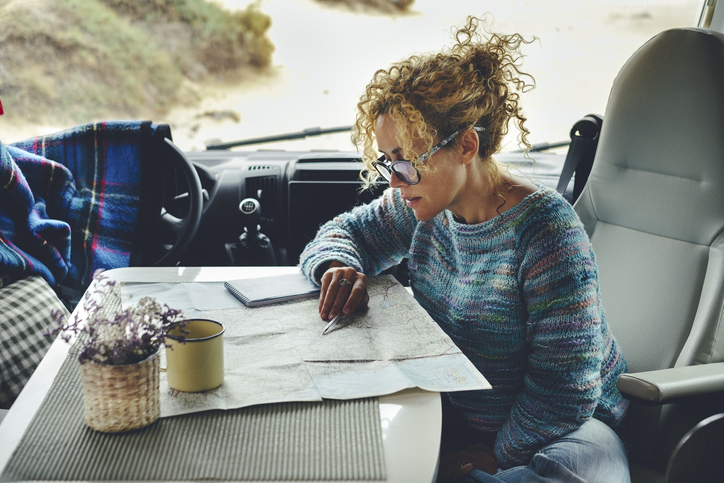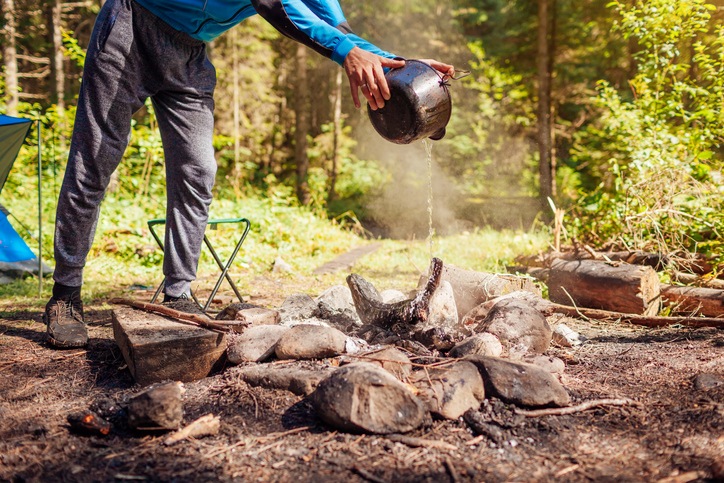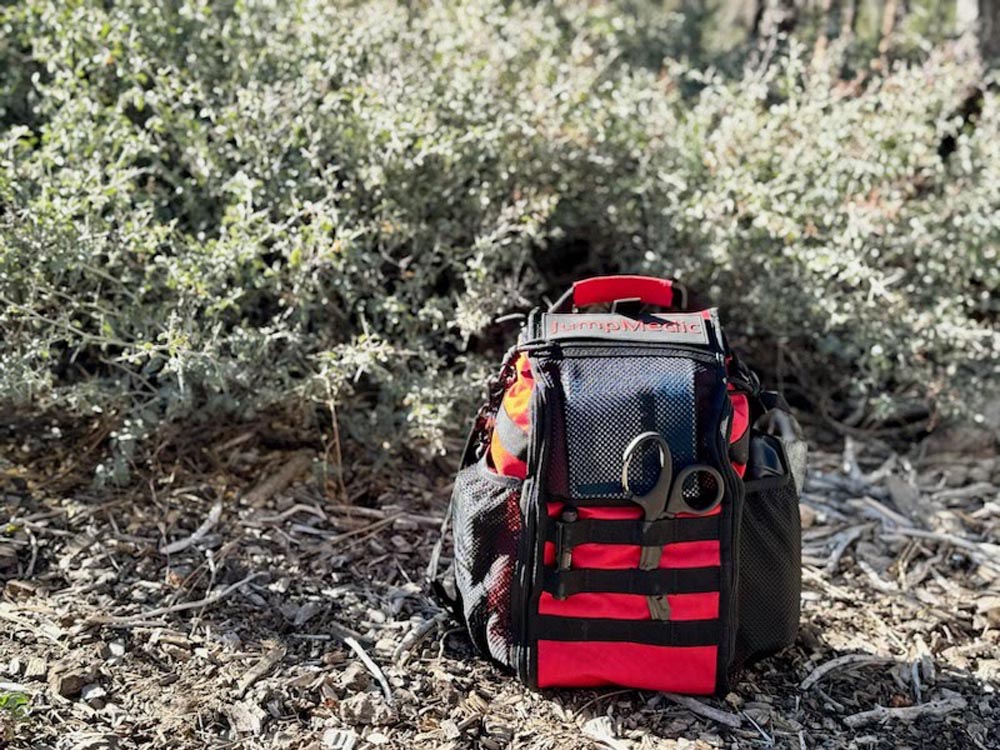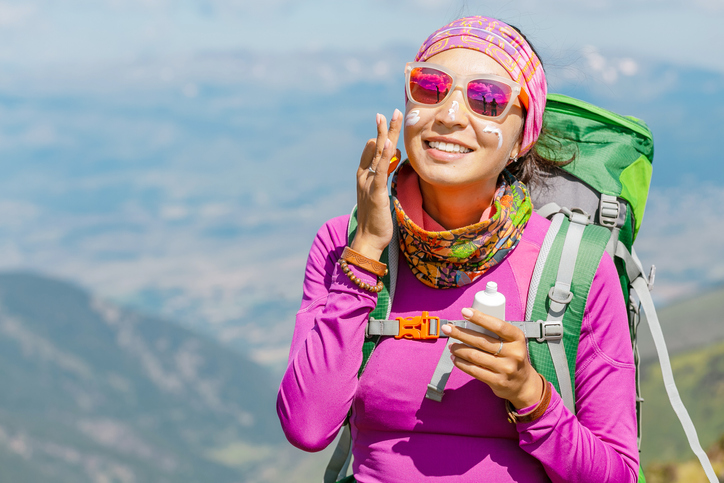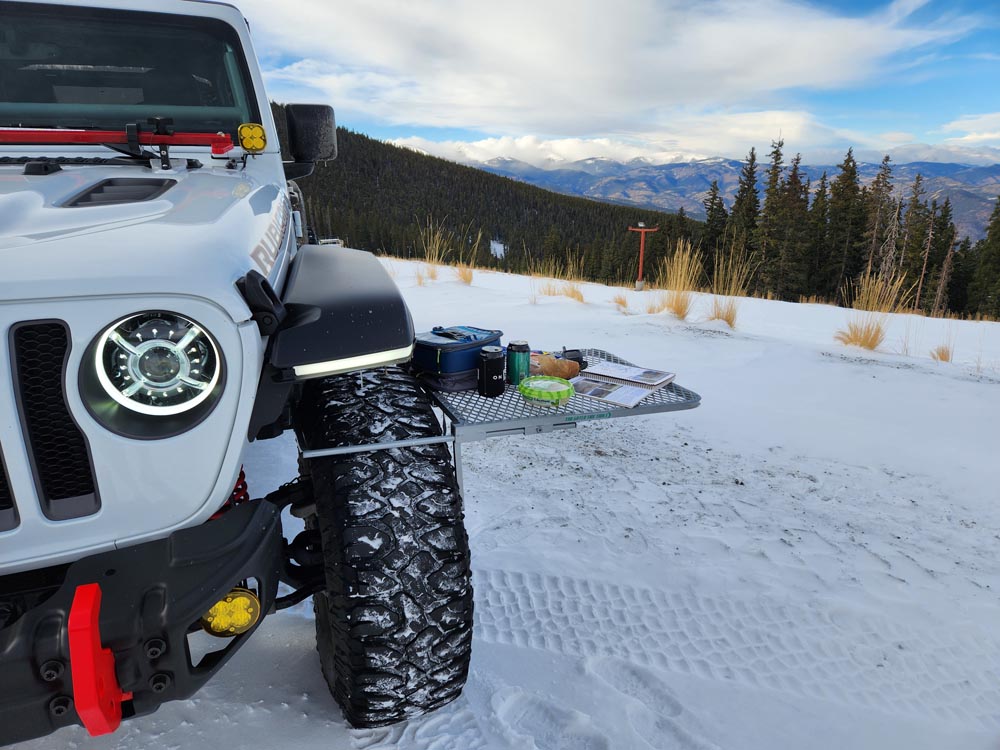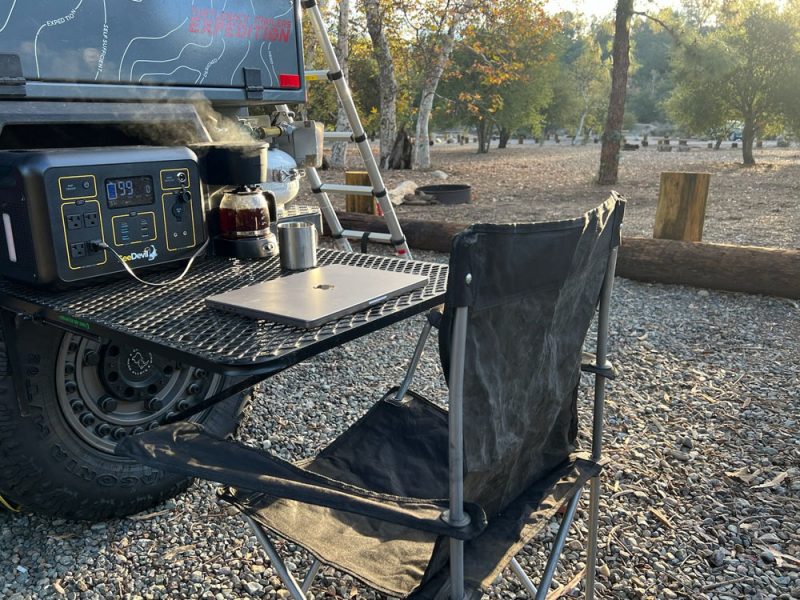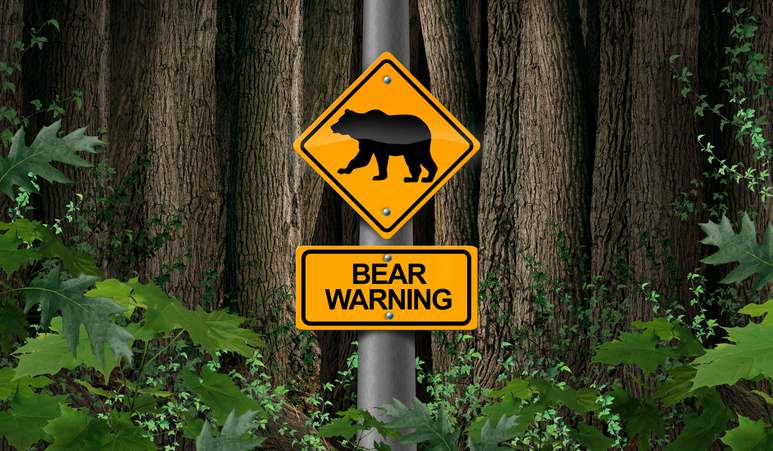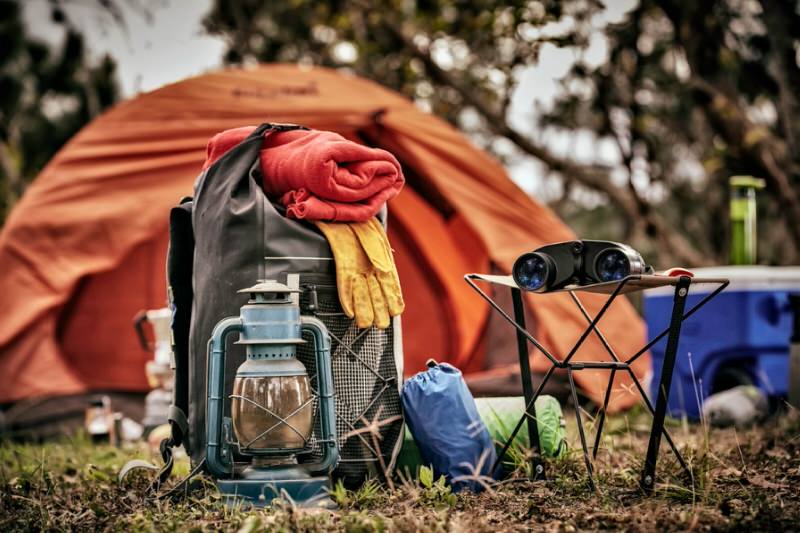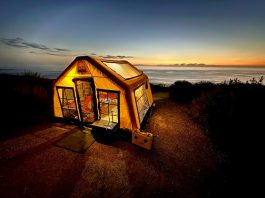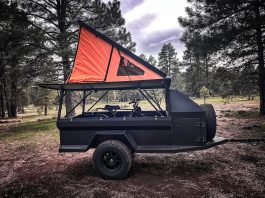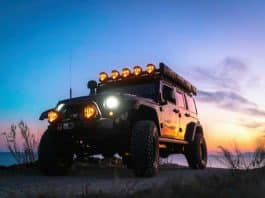Photo by Barish Baur via iStock
Camping is a wonderful way to escape the chaos of everyday life, connect with nature, and create lifelong memories. However, it also presents unexpected challenges and risks for people with little or no camping experience. That’s why educating yourself on how to stay safe while camping is essential.
In this safety guide, we’ll share the key camping safety tips to practice when exploring the outdoors. From planning ahead and packing the correct gear to protecting yourself from the sun and local wildlife, the goal of every one of our tips is to ensure you stay safe and have fun when camping.
Furthermore, whether you’ve never been camping before or are an experienced camper looking to enhance your safety knowledge, we promise you’ll feel more confident and prepared for your next camping adventure after reading this article. That said, it’s time to dive in and discover our top safety tips for camping!
Check out the video above by Amanda Outside for more invaluable camping safety tips from a highly-trained professional.
Table of Contents
- Camping Safety Tips: Be Prepared
- Camping Safety Tips: Fire Safety
- Camping Safety Tips: Bring a Good First Aid Kit
- Camping Safety Tips: Protect Yourself From the Sun and Bugs
- Camping Safety Tips: Pack Enough Food and Water
- Camping Safety Tips: Store Your Food (and Other Scented Objects) Properly
- More Safety Tips for Camping
Camping Safety Tips: Be Prepared
Photo by simonapilolla via iStock
The truth is that camping safety starts well before you head outdoors. Our first tip (and arguably the most consequential) is to plan and prepare properly for a camping trip. This starts by researching the area where you are going so that you can know what to expect from your campground and what safety issues might arise.
Other important things to consider before embarking on any camping adventure include checking the local weather forecast, telling someone where you are going, investing in the necessary gear, and being up to date on your vaccinations. You are ready to hit the road only after completing all those tasks.
Camping Safety Tips: Fire Safety
Photo by Maryviloet via iStock
One of the most stereotypical camping activities is roasting marshmallows over a campfire and eating smores. But as fun as that is, did you know that campfires are one of the leading causes of wildfires in the United States? That’s right, so learning the do’s and don’ts of fires should be at the top of every beginner camper’s to-do list.
The first thing you must always know before starting a fire is whether or not they are permitted where you are camping. Fires are strictly prohibited in many places (especially in dry regions and during summer), and you can receive hefty fines if you disobey this law. If you can have one, does your campsite have a designated fire pit, or can you do it anywhere?
Also, please, please, please ensure that your fire is 100% out before leaving it unattended, going to sleep, or returning home. Drowning the fire with water and then covering it with dirt is the best way to extinguish it. Here are a few more fire-related camping safety tips:
- Build a firepit out of rocks if one doesn’t already exist
- Keep water and/or a shovel nearby
- Don’t start a fire close to low-hanging branches, bushes, or other flammable materials
- Know which way the wind is blowing
- Keep it small, and don’t let it get out of control
Camping Safety Tips: Bring a Good First Aid Kit
You never know what will happen when in the backcountry, how far away the closest hospital is, or even if you will have cell phone service. That’s why bringing a well-supplied first aid kit and understanding the basics (at minimum) of first aid is necessary whenever camping or participating in outdoor activities.
Personally, we always travel with the JumpMedic Pro. It’s a fully-equipped first aid kit stocked with everything you need in case of an emergency: bandages, medications, trauma gear, medical equipment, and more.
Alternatively, if you want to improve your first-aid skills, we recommend this two-day Wilderness First Aid Course through REI. Having a great first aid kit is one thing, but knowing how to use its contents is another!
Get more details about the value of a good first aid kit in my video above.
Learn More:
Camping Safety Tips: Protect Yourself From the Sun and Bugs
Photo by frantic00 via iStock
The sun is the silent killer that so many of us overlook on a day-to-day basis, but when camping, it’s crucial to take the proper safety precautions. This includes wearing a hat, sunglasses, long sleeves, and consistently applying sunscreen. Did you know that in the mountains (even during winter or when it’s cloudy) you can get terribly sunburnt?
Bugs are another annoying (potentially dangerous) thing to consider when camping. The two main culprits to watch out for are mosquitos and ticks, but spiders, scorpions, and gnats could be present depending on where you go. The best ways to repel bugs are using bug spray, bug nets, and wearing clothes that cover your skin.
Camping Safety Tips: Pack Enough Food and Water
Another one of the most important camping safety tips is staying hydrated and eating properly. If your body runs low on either of these things, you will be hungry and grumpy, and your decision-making will suffer, putting you in harm’s way. With that in mind, you should always bring more food and water than you think you need.
We highly recommend bringing a water filter and a cooler when camping. A water filter lets you go anywhere without relying on fresh drinking water. While most established campsites have water fountains, you won’t have access to them if you go wild camping. At the same time, an insulated cooler keeps food fresh for longer and drinks cold.
Also, having a solid and sturdy table is a game-changer. Not only does it make cooking and prepping backcountry meals easier, but it makes it safer. It helps you avoid unnecessary spills, burns, cuts, etc. We always go camping with our Tailgater Tire Table. It’s an innovative and durable multipurpose table that attaches itself to the wheel of your vehicle.
Check out the video above on our 4wdTALK YouTube Channel for a hands-on review of the Tailgater Tire Table after using it religiously for 12 months. Alternatively, read our Tailgater Tire Table Review to learn more about its key features, specs, and pros/cons.
Camping Safety Tips: Store Your Food (and Other Scented Objects) Properly
Photo by wildpixel via iStock
One of the biggest fears and concerns beginner campers have is bears. Luckily, we have some good news: most places don’t have bears, and even in the areas that do, bear attacks are incredibly rare. But that doesn’t mean you should leave food around your campsite or in your tent. Mice and other rodents will happily chew through your expensive new tent for a snack.
Many campsites have metal lockers, and they should be the first place you look to leave your food. If you are car camping, you can also leave your food locked away in your car. However, when backpacking, and neither of those is an option, you should use a bear canister or bag or hang your food from a tree.
Other common camping “smellies” that need to be stored properly include toiletries, beverages, sunscreen, and medications.
More Safety Tips for Camping
Photo by apomares via iStock
Woohoo! Now that you know the basic camping safety tips for beginners, what are you waiting for? There’s no better day than today to start investing in high-quality camping gear and planning your next camping trip!
Want to learn more about camping safety? Here’s a bonus list of a few more things to keep in mind that will help you stay safe and secure when camping:
- Decide how you want to camp (tent, RV, van, trailer, etc.)
- Learn about local wildlife and plants you might encounter
- Bring a GPS device (or a map for the old-school adventures out there)
- Know and respect your limits when participating in physical activities
- Have Fun!
Heads up: Clicking on our affiliate links and exploring our sponsored content helps us at no extra cost to you, and we only recommend gear we’re absolutely crazy about!

